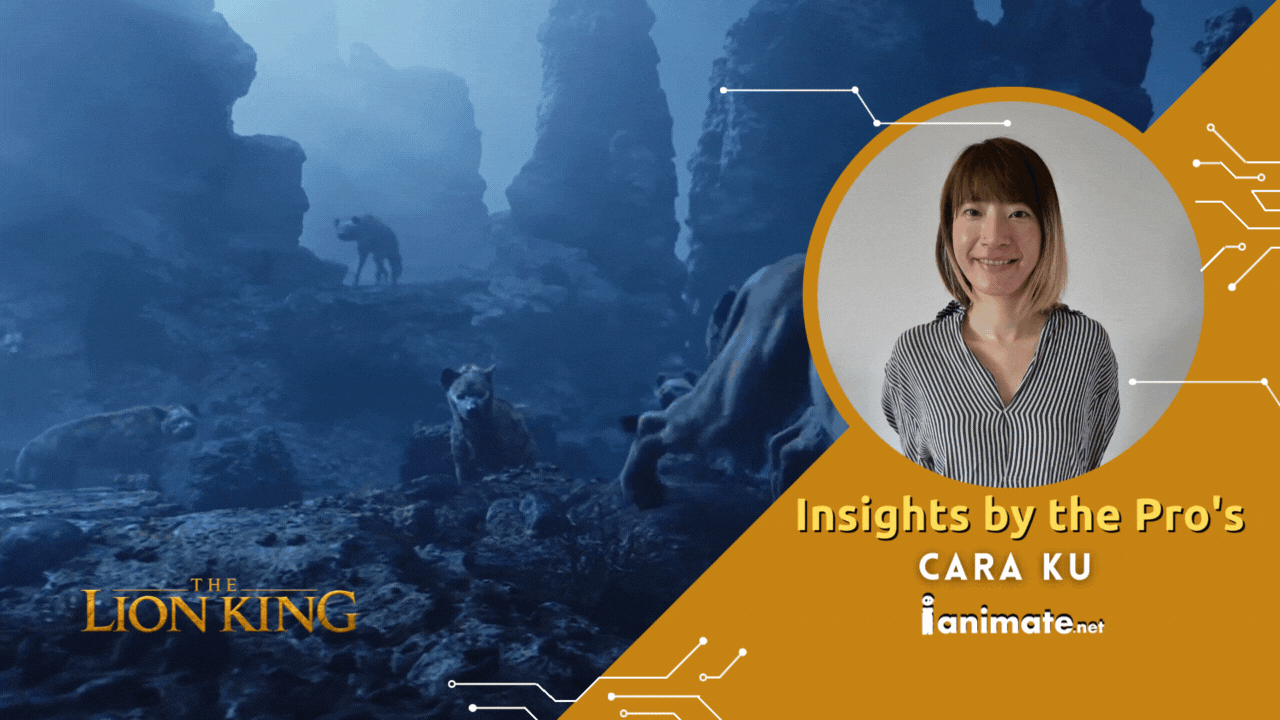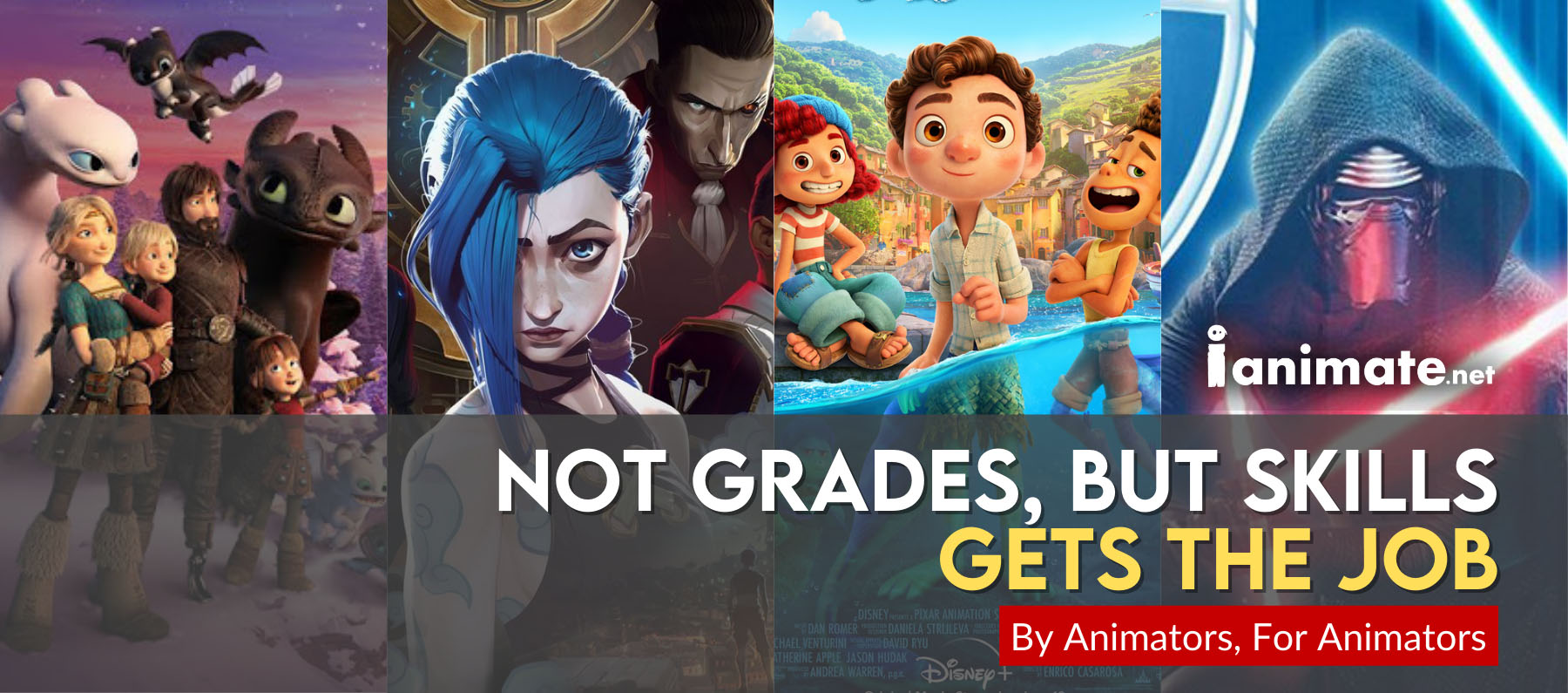Insights by the Pros with WetaFX Animator Cara Ku
Explore insights of Cara Ku, a seasoned animator at WetaFX. Discover her journey, from character animation to creature-based VFX, and passion for learning.
“It was after a few years in MPC, I wanted to improve my animation knowledge/technique, so I took flight school in iAnimate.”

Meet Cara Ku, an animator hailing from Taiwan, currently lending his talents at Framestore. His journey began in character animation for television shows before transitioning to the VFX industry, where he specializes in creature-based work.
Driven by an insatiable thirst for knowledge, Cara is always eager to expand his skill set and embrace new challenges. His curiosity extends beyond the confines of his work, as he remains deeply interested in global events and loves to explore different cultures through travel. With a career spanning across Singapore, London (MPC), Sweden (Ubisoft), and now New Zealand, Cara's journey is a testament to his passion for animation and adventure.
Cara is currently working as an Animator at Framestore.
Alumni Interview
Animation Journey and Inspiration
iAnimate: Tell us a bit about your animation journey and throughout your time with us. Who or What inspired you to become an animator? How did you become an animator, and when did iAnimate become part of your journey?
Cara: I got into animation when I was in University majoring in film. I like storytelling, so for me, animation is just one of the art forms of story telling.
I learned animation in the company-run tutoring classes (3 months) after I graduated. In Taiwan, we don't really have a strong movie industry, so we mainly work on Tv shows, such as doing outsourcing for Dream Work(how to Train Your Dragon). After a few years of character animation, I wanted to make a transition to the VFX industry, so I took a creature class in Animation Mentor and the work I did in the class helped me land into London MPC. ( I don't remember why I didn't hear of iAnimate at that time).
It was after a few years in mpc, I wanted to improve my animation knowledge/technique, so I took flight school in iAnimate.
iAnimate: What's it like working at your studio?
Cara: VFX studios have many things in common, once you work in one studio, you can expect the rest studios to have the same ways of doing things, such as pipeline/tools/dailies/shot progress....etc. Of course, each studio has its pipeline, but the structure is the same. It's always fun for me to see every studio's pipeline and tools, see how they do things, and if it's animator-friendly.
Our work is based, we get feedback from leads and supes in dailies which we have it every day, you can show your work when you have something to show. Usually, there's a blocking stage and a final stage, but depending on the shows, sometimes directors can keep changing their ideas, and then you might stuck at the blocking stage trying to figure out what directors want instead of going to the final stage smoothly.
iAnimate: What kinds of projects are you working on and what’s your favorite part so far?
Cara: Each Vfx studio has its own ecosystem, for example, Weta is a monkey expert, and they have lots of mocap work..... London mpc has many quadruped shows such as Lion King. During the time I stayed with them, I had the chance to work on many animals, lions, seals, gorillas, dogs, and dinosaurs.....which was super fun to me!
I've always liked watching natural documentaries, and we need to study animals when working on creatures. I really enjoy finding a ref for my shot, it's not just analyzing mechanics, but also our interpretation of the shots as animals can only perform in a subtle way, and hopefully, we can tell a good mini story in our shot.
Animation Lessons and Growth
iAnimate: How did iAnimate help prepare you for the industry? What were the most important things you learned at iAnimate?
Cara: I took flight school and I think it gave me a solid fundamental understanding of birds' anatomy and body mechanics which helped me later on the shows that have flight animation.
[Cara's Current Reel]
iAnimate: Do you have any demo reel or interview advice you can share with animators on the job hunt?
Cara: Customizing your reel to different studios, feature/character animation like to see an interesting performance, sometimes they rather see an interesting character but less polish instead of seeing a polished character but without soul. VFX studios like to see creatures and solid physics, they like to see polished work with lots of details as in the schedule is usually tight.
In an interview, usually, they've seen your work and they like it, they just wanna get a better idea of whether or not you would fit in with the team. Most likely you've got the job, just don't screw it up. I think it's important to be confident about our work, and confident about ourselves. (but it's OK to be nervous). The key thing that you don't wanna do in a job interview is you don't want to be really braggy and arrogant. The employer is looking for a good fit for the team, it doesn't matter how good you are, if you're really poisonous to the team or have a negative effect on the other people in the company, that would cause even more problems.
iAnimate: What other advice do you have for current or future iAnimate students?
Cara: Be patient with your journey and your skills, any experience is good experience, and you will achieve your goal whatever that is in time, just enjoy the ride and have fun along the journey!
Animation Career Advice & Tips
iAnimate: If there’s one animation tip or technique you’d share with someone wanting to animate in a feature film, what would it be?
Cara: Develop multiple workflows--Know which T-shirt to wear to every party.
iAnimate: Given that there’s so much to learn, how would you recommend a brand new animator start their training?
Cara: Break body mechanics down into simple chunks with simple exercises. So that you don't take 20 new skills at once, stuff you haven't really understood yet and it's kind of coming all at you and you're expecting it to turn out great. Simple exercises let you focus on improving a few skills at a time. Keep it simple and short, so you can quickly test out your workflow for follow-through/ anticipation....whatever you're currently practicing.
iAnimate: What makes a great animator or an animator a studio would hire?
Cara: 1. Solid demo reel
2. Solid demo reel3. Solid demo reel
Want to learn what Disney, Pixar, and Blizzard do in their animations?

Be mentored by industry professionals from the leading studios in the industry. Start your animation career and get the dream animation job you want! Learn more about iAnimate and the Workshops that are made just for you.

